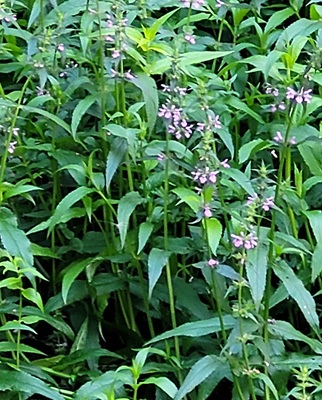Flower Properties
| Property | Value |
|---|---|
| English Name | Marsh Woundwort |
| MainColor | Violet |
| PlantType | |
| Growth Type | |
| Season | August |
| ImageUrl | Stachys-002 |
| Photographer | DP |
| Location | Cheshire |
| Human Toxicity | Non_Toxic |
Flower Details
Description
Marsh Woundwort is a perennial herb with square stems and broad, ovate leaves. It produces spikes of small, tubular pink to purple flowers that bloom from late spring to early autumn. The plant typically grows in damp, marshy areas.
Distribution
This species is commonly found in wetlands, riverbanks, and marshes across Europe and parts of Asia. It prefers moist, nutrient-rich soils and can often be seen in the wild.
Medicinal/Other Uses

✅ Historically, Marsh Woundwort has been used in traditional medicine for its anti-inflammatory properties. It is also known for its potential to treat wounds and skin ailments.
Edibility

The leaves and young shoots can be used in salads or as a herbal tea, although they are not widely consumed. Proper preparation is recommended to avoid any adverse effects.
Human Toxicity
Some individuals may experience allergic reactions or skin irritation upon contact with the plant. It is advisable to handle with care. Human toxicity: generally considered safe for human use in moderate amounts.
Pet Toxicity

Non Toxic to dogs and cats - no significant toxicity reported for common pets.
Active Compounds
The plant contains flavonoids and tannins, which are thought to contribute to its medicinal properties.
